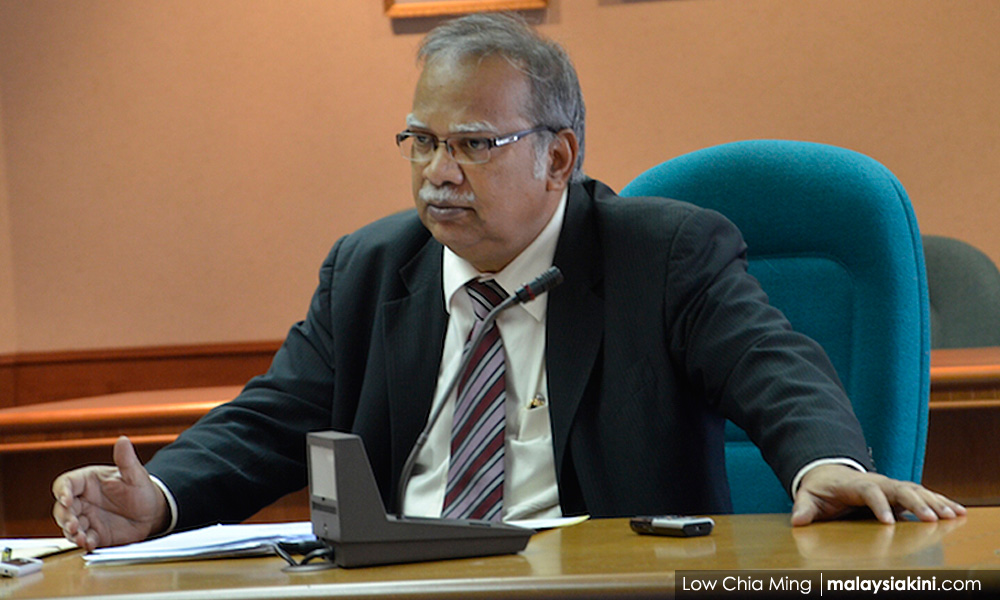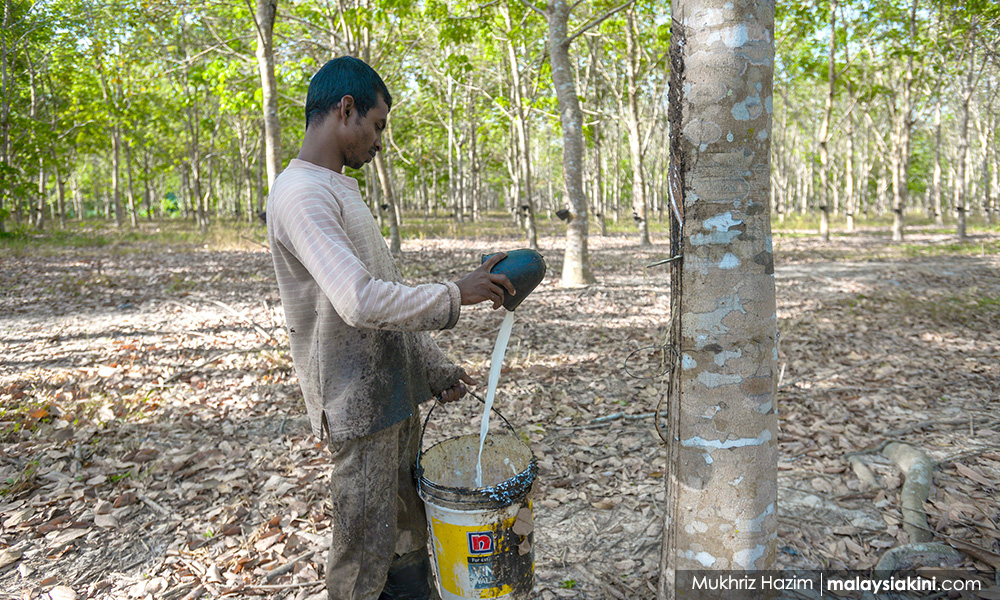Penang Deputy Chief Minister II P Ramasamy says that Malaysian plantations will only see a full eradication of forced labour practices when plantation land is developed.
He said, at any one time, 68 percent of the country’s labour population experienced some form of forced labour and it “can only be swallowed by development”.
Ramasamy said forced labour was typically prevalent in plantations and sees the development of plantation land as an inevitable solution to completely eradicate such practices in the industry.
Bonded labour, he added, was the most extreme form of forced labour.
He was speaking to Malaysiakini in reference to a report on bonded labour allegations of a Malaysian worker in Bahau, published earlier this month. However, he was not always of this opinion.
Strong enforcement
When contacted by Malaysiakini 15 years ago in 2007 about a similar case in Jempol, Ramasamy called for law enforcement to be stepped up.
Both alleged cases, old and current, involved smallholding plantations in Negeri Sembilan.
In the earlier case, Ramasamy had said a concerted effort between the Labour Department, trade unions, NGOs, and the political opposition, minus corruption, was the best solution to addressing forced labour.

On May 3 this year, Malaysiakini reported an investigation by human rights group Suaram into a case of bonded labour in Bahau.
There were claims of recruiters in neighbouring towns who allegedly enticed workers by offering to settle their debts in exchange for employment in a plantation to repay the settlement.
Suaram’s investigation started after a worker alleged he was kept captive on the plantation, forced to work long hours, was beaten, and had irregular wage payments.
He was to remain in servitude until his RM3,500 debt, which was used to post his bail for a crime he claims not to have committed, was settled.
Not able to withstand the conditions of work, he pleaded guilty and chose jail time instead.
Cannot be eradicated overnight
“Forced labour was not unique to Malaysia as it was pervasive in countries that relied on cheap labour.
“Humans have exploited humans from time immemorial and these were elements that have been with us from the time of the colonial economy where debt bondage was among the earliest form of slavery.
“This was not something that could be eradicated overnight,” Ramasamy explained.

He further said the eradication of forced labour in plantations depended on the nature of development and the type of investments that flowed into the country.
“Our skill level in this country is at 32 percent and this portrays a low level of skills.
“When skill level is low, forced labour is prevalent,” he said.
The Malaysian Estate Owners’ Association (MEOA) declined to comment on the allegations by the worker from Bahau. Human Resources Minister M Saravanan could not be reached for comments.
Smallholder plantations are typically no larger than 100 acres and the Roundtable on Sustainable Palm Oil reports on its website that three million smallholders and small-scale farmers make a living from palm oil globally.
The report stated that farmlands are small compared to industrial plantations but they represent 40 percent of the total oil palm plantation area in Malaysia and Indonesia alone, making them a significant contributor to the palm oil industry.
Meanwhile, Plantation Industries and Commodities Minister Zuraida Kamaruddin had recently welcomed the decision by the US Customs and Borders Protection (CBP) to set up a working committee with the Malaysian government to address forced labour allegations.
Suaram added that there has been no known further action taken by the police on the Bahau worker’s allegations after he lodged a report. - Mkini



No comments:
Post a Comment
Note: Only a member of this blog may post a comment.